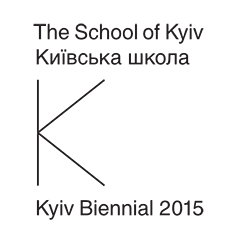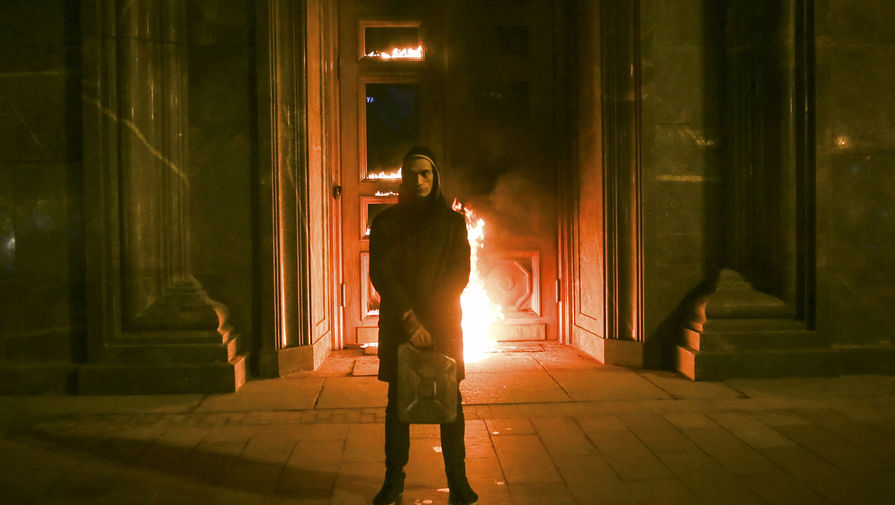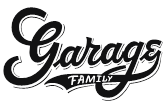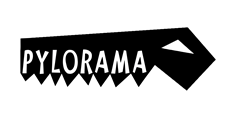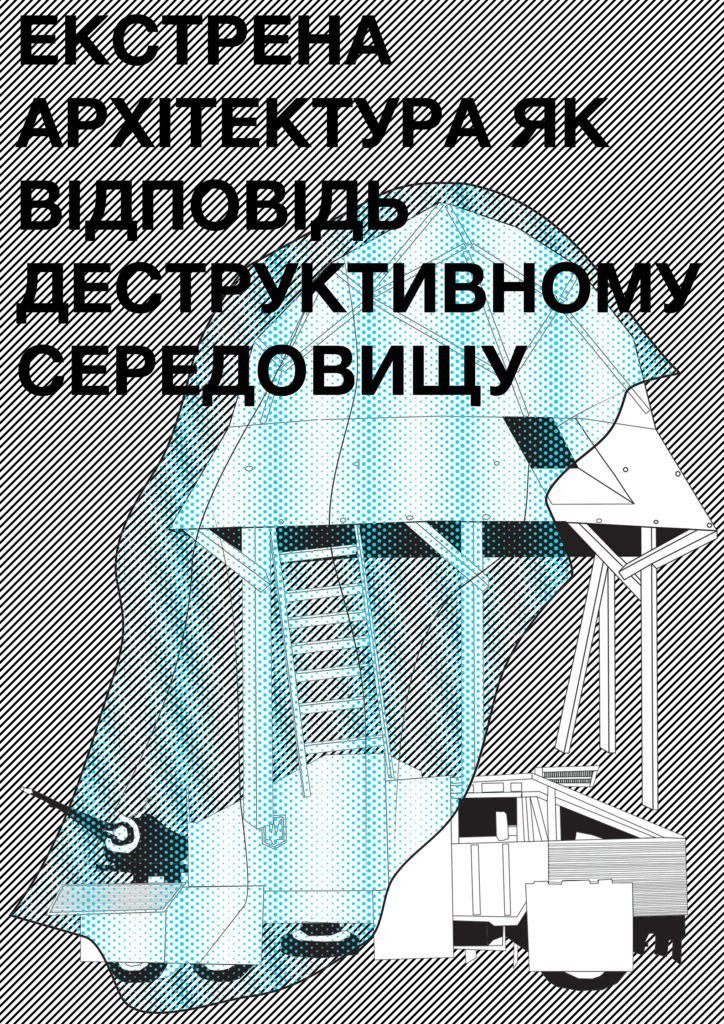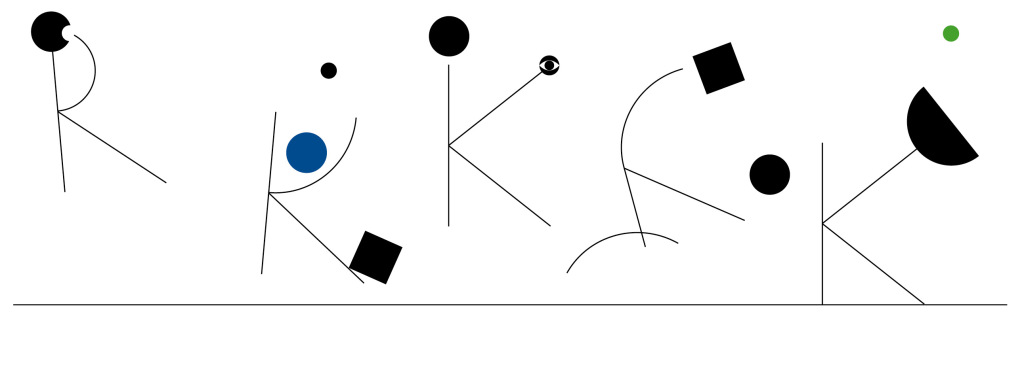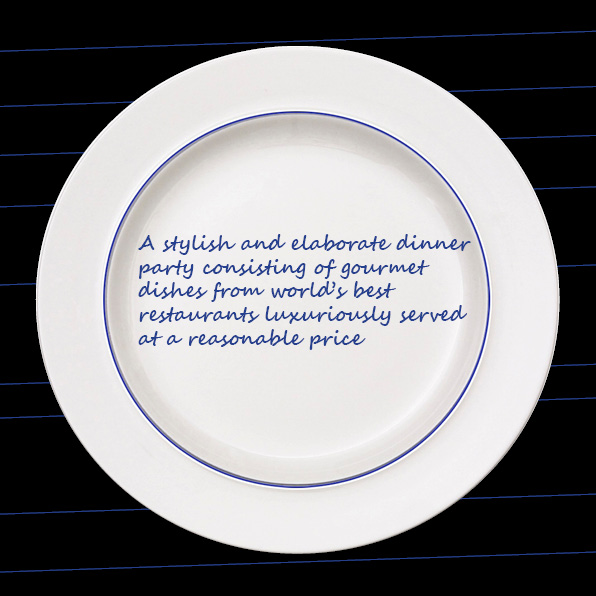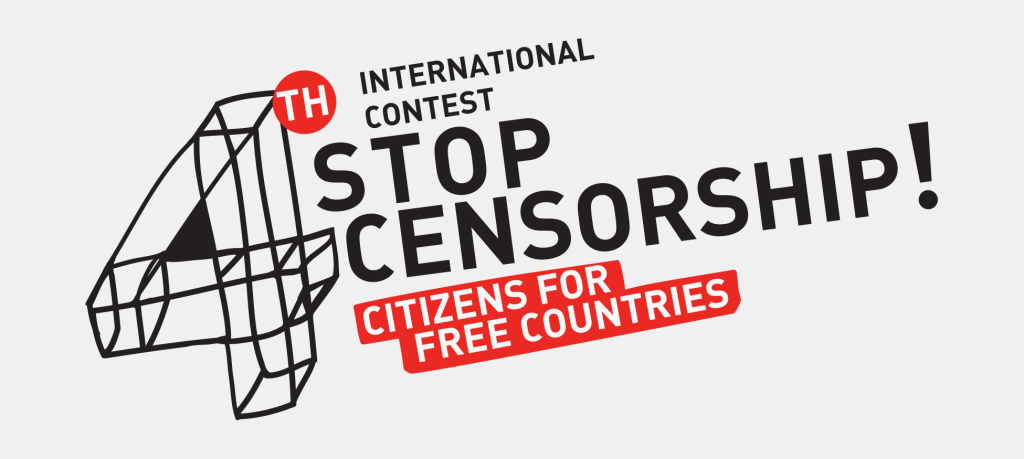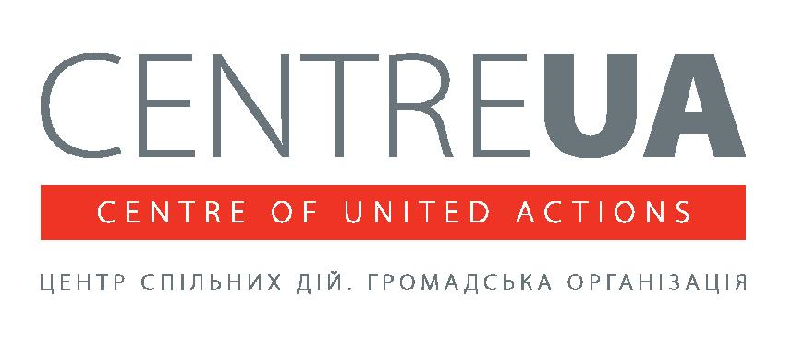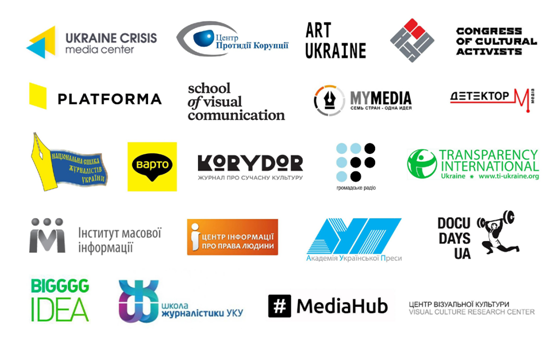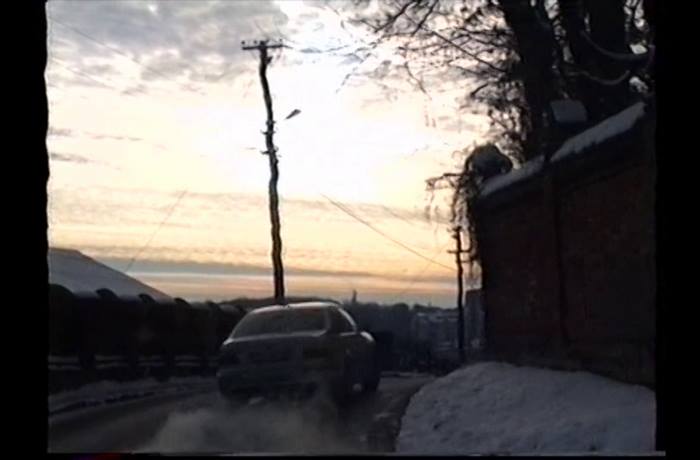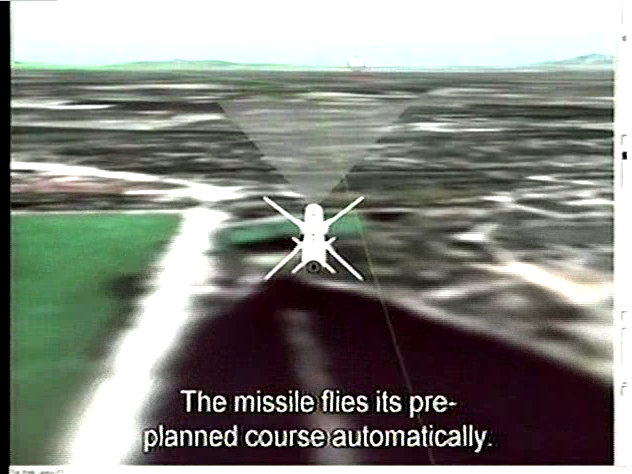NEEDS. The first Petr Pavlensky’s talk out of prison
Sunday, 19 June 2016, 19:00
The first Petr Pavlensky’s talk out of prison
NEEDS
The first public talk out of prison – Needs – will be given by Petr Pavlensky in Ukraine, where he was invited by Hromadske.
Russian artist was released on June 8 as a result of a trial for setting the door of central administration of Russian Federal Security Service on fire. Pavlensky turned his proceedings into a performance making the repressive apparatus work for art.
In his first TV interview out of prison Pavlensky said: “Being in custody, I saw a lot of dignity among prisoners, but also how law enforcement system tries to discipline people working out the habit to obey orders, and they are being disciplined, namely, by needs. This is very important.”
Moderated by Natalia Gumenyuk
Petr Pavlensky is Russian performance artist, author of radical actions in public space. He is an editor of Political Propaganda magazine and publishing house. Lives and works in Saint Petersburg. In February 2014 as part of his Freedom, action dedicated to Ukrainian Revolution of Dignity, Pavlensky reproduced Maidan in Saint Petersburg. In November 2015 he made his Threat performance by setting the door of central administration of Russian Federal Security Service on fire. During the trial he asked to classify his case as “terrorism” to be associated with Crimean political prisoners.
The talk will take place on June 19 at 19:00 in Visual Culture Research Center.
Admission is free
Organizer: Hromadske
Partners: Visual Culture Research Center
Political Critique
Contacts:
Hromadske
+38 (067) 505-67-40
+38 (067) 505-67-59
Visual Culture Research Center
Kyiv, 44 Hlybochytska Street, 1 floor
+38 (067) 669-54-57 Ganna Tsyba
+38 (063) 953-51-43 Natalka Neshevets
DIYstvo 2016
Saturday, 28 May 2016, 14:00
30/34 Petrivska Street
DIYstvo 2016
Visual Culture Research Center and Political Critique invite you to the festival of urban self-organization and creativity DIYstvo 2016, taking place on Saturday, May 28 in the territory of a forest and garage co-op at the address 30/34 Petrivska Street.
Taking place annually since 2009, DIYstvo festival engages the most interesting grassroots and activist initiatives from the spheres of urban development, handicraft, printing, and music, as well as other self-organized communities. “Do-it-yourself” is a call for moving beyond the exchange relationships logic and establishing social ties that are basic for mutual help and support. D.I.Y. festivals strive for becoming places of formation and development of self-organized communities, which can solve numerous local, especially urban, problems. This year’s programme involves site-specific work, presentation of local D.I.Y. brands, music, and a series of workshops.
The participative construction UFO DIY project will be conducted for two weeks by Pylorama collective. Its aim is to provide direct access from Lvivska Square to Hlybochytska Sreet, build wooden platforms and stage for studying and relaxation;
Waste sorting and utilization workshop will take place simultaneously with the construction;
Juridical workshop on basic civil rights and communication with law enforcement will take place on the rebuilt festival territory;
At DIY-Print workshop participants will learn different types of hand printing, attend artist’s master classes and exhibition of their latest works;
And on May 26 a co-founder of Pylorama collective Dana Kosmina will deliver a lecture Emergency Architecture as a Response to Destructive Environment and demonstrate basic elements of emergency dwelling.
Programme:
May 17-28
DIY-territory
UFO DIY project – a workshop by Pylorama collective; forest cleaning and ecological workshop on waste sorting
May 26, 19:00
DIY-planning
Dana Kosmina. Emergency Architecture as a Response to Destructive Environment, Visual Culture Research Center (44 Hlybochytska Street, 1 floor)
May 28
12:00 Final forest cleaning
14:00 Festival opening
14:00-19:00
DIY-community
At Pink Whale’s market: local brands and hand-made products, food and drinks
Live workshops by garage co-op
Juridical workshop
Drawing playground for children
15:00-18:00
DIY-print
Experimental and artistic printing section
Exhibition of printed works
16:00-22:00
DIY-music
16:00-22:00 Punk stage
Predsmertnaya Kadril (Kyiv)
Sorta (Homel)
Force events! (Mohyliv)
Murder (Kyiv)
Dity Velykoho Mista (Kyiv)
Thaino! (Kyiv)
The Forest Trip (Kyiv)
Fifty/fifty (Ivano-Frankivsk)
18:00-22:00 Beat stage
Sergey Poh&djDie
Tenio & Friends
Admission and participation are free
Organizers of the festival:
The project is supported by Rosa Luxemburg Stiftung
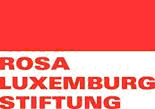
Supported by ERSTE Stiftung and Charles Stewart Mott Foundation:
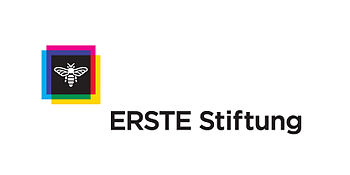
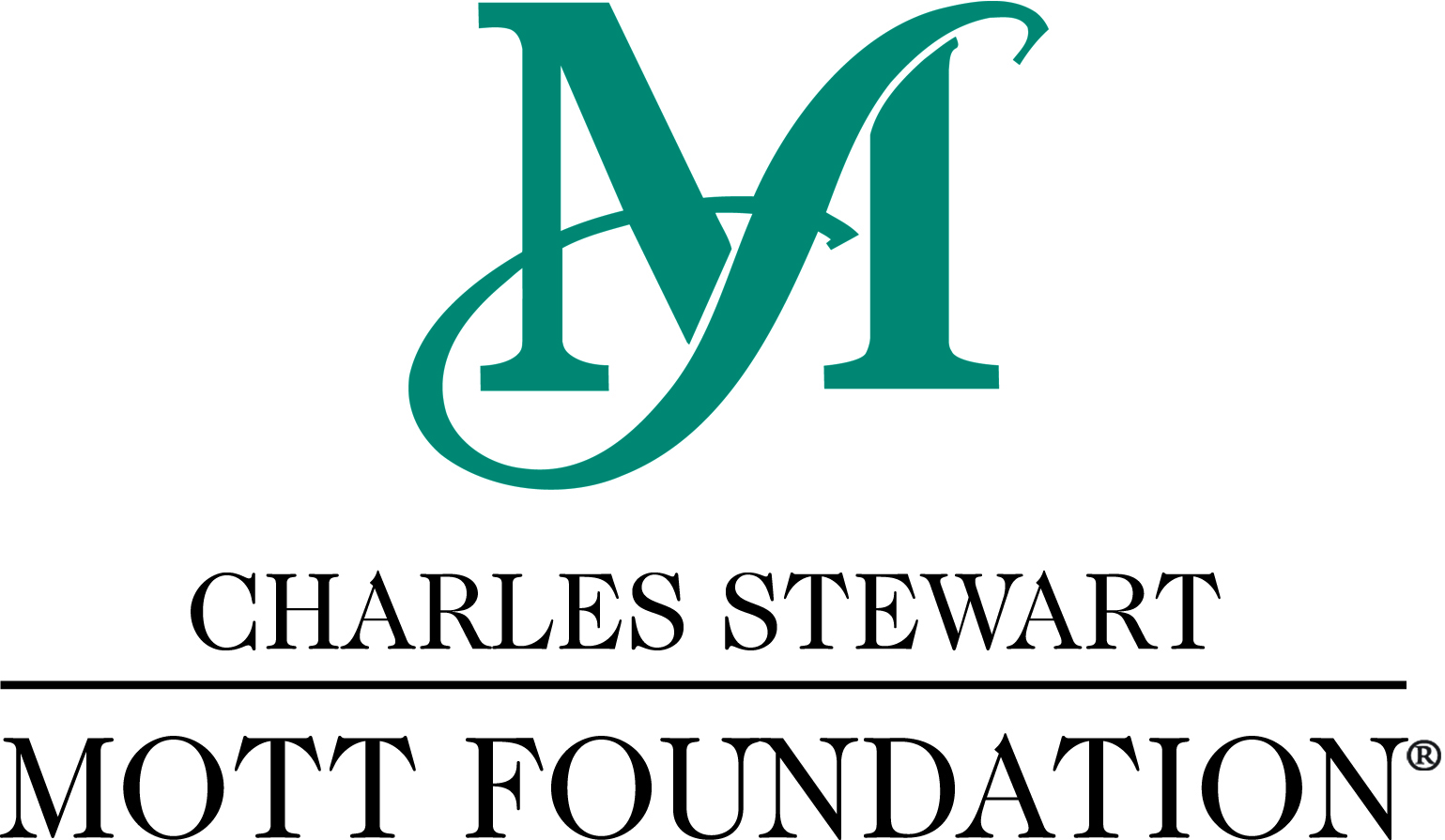
Contacts:
+380676695457 Ganna Tsyba
+380639535143 Natalka Neshevets
Fb: VCRC
Lecture by Dana Kosmina
Thursday, 26 May 2016, 19:00
Lecture by Dana Kosmina
Emergency Architecture as a Response to Destructive Environment
Visual Culture Research Center and Political Critique invite you to the lecture by Dana Kosmina, taking place on Thursday, May 26, at 19:00.
The lecture is going to explore local communities, which influence urban processes through micro-architectonic interventions. Participants will learn what “depressive environment” is, who the “passive warriors” are, how much the “tactical urbanism” costs, which methods of “field work” exist, etc. Dana will give a brief analysis of her own and other international projects. Besides theoretical lecture, a joint practical workshop with participation of garage co-op community will be taking place for two weeks.
Dana Kosmina is a cofounder of Pylorama collective, artist and architect. She is a member of Children’s Geographies initiative. She works at Forma Architectural Studio in Kyiv.
DIYstvo is an annual festival of urban self-organization and creativity, taking place on May 26-28, 2016 in Kyiv. The festival aspires to the development of the D.I.Y.-movement and its expansion to other Ukrainian cities. It engages the most interesting grassroots and activist initiatives from the spheres of urban development, handicraft, printing, and music, as well as other self-organized communities. On the programme: urban workshops, site-specific work, silk-screen printing workshops, local D.I.Y.-brands, music. The festival has been taking place since 2009.
Admission is free
The project is supported by Rosa Luxemburg Stiftung

Supported by ERSRE Stiftung and Charles Stewart Mott Foundation


Contacts:
+380676695457 Ganna Tsyba
+380639535143 Natalka Neshevets
A DEPARTMENT OF THE SCHOOL OF KYIV – KYIV BIENNIAL 2015 IN VIENNA
May 17-21, 2016
A DEPARTMENT OF THE SCHOOL OF KYIV – KYIV BIENNIAL 2015 IN VIENNA
The School of Kyiv – Kyiv Biennial 2015 (8.09. – 1.11.2015) is an independent project curated by Hedwig Saxenhuber and Georg Schöllhammer (Vienna), conceived and organized together with the Visual Culture Research Center (Kyiv). The School of Kyiv has presented a new format of an art biennial integrating exhibitions and arenas of public reflection. The six departments, Schools, of the biennial still continue their work as collaborative forums. The Departments of The School of Kyiv are open in a number of institutions across Europe as an integral part of the project.
There are several Schools taking place in Vienna now: The School of the Lonesome and The School of the Devil are hosted in May at the Sandleitenhof, The School of the Displaced at municipal libraries and in public spaces, “The School of Kyiv at Kunsthalle Exnergasse” at WUK.
Program:
Performance by Mikhail Koptev and the Orchid Theatre
May 17, 2016, 7 pm
WUK 1090 Vienna, Project Room, Währinger Straße 59
Discussion: Ukraine in Flames: What Can Art Tell after the Revolution?
Participants: Oleksandr Burlaka, Vasyl Cherepanyn, Lesia Khomenko, Serhiy Klymko, Lesia Kulchinska, Anya Medvedeva. Moderated by Maria Teteriuk.
May 18, 2016, 4 pm
Kunsthalle Exnergasse, Währinger Straße 59
Exhibition opening: Into the Dark
Curated by Hudrada
May 18, 2016, 7 pm
May 19-29, 2016, Exhibition / Opening hours: daily 13:00 – 18:00
Kunsthalle Exnergasse, Währinger Straße 59
Performance by Kateryna Mishchenko: Meeting on the Bridge
May 20, 2016, 7 pm
Sandleitenhof, 1160 Vienna, Matteottiplatz 6
Artist talk by David Chichkan: How to Make the Radical Left Art in Ukraine?
May 21, 2016, 5 pm
Kunsthalle Exnergasse, Währinger Straße 59
In-hibition: A Story of Love and Hatred Towards Art. Lecture by Lesia Kulchynska (VCRC)
May 21, 2016, 7 pm
Kunsthalle Exnergasse, Währinger Straße 59
Performance by Night Movement (Anastasiya Ryabova, Varvara Gevorgizova): The Night of the Dead Curator
May 21, 2016, 10 pm
Sandleitenhof, 1160 Vienna, Matteottiplatz 6
Admission is free
Contacts:
+380676695457 Ganna Tsyba
+380639535143 Natalka Neshevets
HAPPENING BY VALENTYNA PETROVA
Friday, 29 April 2016, 19:00
HAPPENING
“A STYLISH AND ELABORATE DINNER PARTY CONSISTING OF
GOURMET DISHES FROM WORLD’S BEST RESTAURANTS
LUXURIOUSLY SERVED AT A REASONABLE PRICE”
BY VALENTYNA PETROVA
Visual Culture Research Center and Political Critique invite you to the happening by Valentyna Petrova, taking place on Friday, April 29, at 19:00.
The artist will present parts of the interactive installation, which are replicas of exclusive dishes, such as ostrich salad in apple-jack sauce, cold scallop julienne with avocado, red caviar, and truffle oil, etc. She will replace the ingredients, needed for the preparation of these dishes, with the masticated bread mush and food colouring. This gesture addresses an issue of poverty, the reverse and grotesque side of which is an aspiration to overconsumption. If you cannot afford desirable goods, you substitute it with the ersatz. The more remote in quality it is from the original, the lesser monetary value it has. Ersatz, substitute, is of no value for those, who are familiar with the original, but those, who cannot even think the original, imagine it as an inherently valuable, desirable, “undisclosed” product. That’s what it is for art, too: at the exhibition for the poor meals, manufactured by the artist, gain the status of art objects. At the same time, the artist realizes that as in art sphere a bread mush reveals one type of exclusiveness, it acquires another one, which can also be questioned.
Nauseating, masticated bread mush reminds us of the monstrosity of poverty itself: it is something we are ashamed of, something unworthy of us. As much as the fear of starvation, sickness, and homelessness disguises the fear of physical body’s death, the fear of poverty is actually the fear of exclusion and social body’s death.
Body liquids sacralize the object only in love, or religion. In her artistic act, the artist tries to reach similar transgression: visitors will be offered to buy and consume dishes, component-biding element of which is her saliva, for a small fee. Artist herself will have dinner with someone from the present, choosing objects directly from the installation. She argues that the ingestion of an art object, will contribute to rethinking of art, which in this case is a situation, process, action.
Valentyna Petrova is an artist, who works with the issues of corporality, precarity, poverty, explores social relations and communities. She was born in Khmelnytskyi, lives and works in Kyiv.
Admission is free
Supported by ERSTE Stiftung та Charles Stewart Mott Foundation:


Visual Culture Research Center (VCRC) was founded in 2008 as a platform for collaboration between academic, artistic, and activist communities. VCRC is an independent initiative, which is engaged in publishing, artistic activities, research, organization of public lectures, discussions, and conferences. In 2015 Visual Culture Research Center received the European Cultural Foundation’s Princess Margriet Award. Visual Culture Research Center was also an organizer of The School of Kyiv – Kyiv Biennial 2015.
Visual Culture Research Center (44 Hlybochytska Street, 1 floor)
Contacts:
+380676695457 Ganna Tsyba
+380639535143 Natalka Neshevets
4th International Contest “Stop Censorship!” announces the admission of works
4th International Contest “Stop Censorship! Citizens for free countries” announces the admission of works
The International Contest “Stop Censorship! Citizens for free countries” will be held for the fourth time this year and will last from April 22 until May 30, 2016.
The Contest joins activism and different kinds of creative practices. Traditionally, the Contest accepts works related to freedom of speech protection, access to public information, fighting censorship and works on a special topic.
This year the special topic of the Contest became “Corruption is…”.
Implementation of urgent reforms in Ukraine as in many other young democracies is delayed. The main reason for this is corruption. Freedom of speech, critical thinking, joint civil actions directed towards controlling the government can change the situation. Analysis of a problem and open dialogue are the first steps to be made to change the situation.
The works are accepted in 5 categories: image, text, poem, slogan and multimedia.
The Contest is very democratic. Everyone regardless of their age, citizenship and education can participate.
The works can be submitted in 4 languages: Ukrainian, the Crimean Tatar language, English and Russian.
The winners will be selected by 3 juries – expert jury, internet users jury and special jury.
The members of experts jury are: Alim Aliyev, Co-founder of “Crimea SOS”, Media consultant; Mykola Goncharov, Designer; Alisa Lozhkina, Editor in chief, Art Ukraine magazine; Natalia Synepupova, Designer, School of Visual Communications; Natalie Sokolenko, Journalist, Hromadske radio; Anastasia Stanko, Journalist, Hromadske.tv; Vladislav Troitsky, Director, producer and founder of GOGOLFEST.
The special jury consists of the representatives of anticorruption organizations and investigative journalists: Dmytro Gnap, Journalist, “Slidstvo.info” program; Oleksiy Khmara, Executive director of Transparency International Ukaine; Tetyana Pecklun, Member of a Board of Anticorruption Action Center; Natalie Sedletska, Journalist, “Schemes” TV program.
Organizers will hold public discussion and workshops on art activism. After the jury selects the winners their works will be exhibited in Kyiv and regions of Ukraine.
Contacts:
Anton Ivanov
+38050 494 58 30
cenzuri.stop@gmail.com
Screening of films by Tactical Technology Collective
Friday, 22 April 2016, 19:00
Film screening
Our Currency Is Information and From My Point of View
by Tactical Technology Collective
Visual Culture Research Center and Political Critique invite you to the screening of films by Tactical Technology Collective, that will take place on Friday, April 22, at 19:00.
Our Currency Is Information and From My Point of View are the first two episodes of the documentary film series Exposing the Invisible by Tactical Tech. The digital age has profoundly transformed the way people find and share information. This has led to previously unimaginable possibilities in investigative reporting. Through a series of short films, video interviews, guides and resources, Exposing the Invisible looks at different techniques, tools and methods along with the individual practices of those working at the new frontiers of investigation.
In Our Currency Is Information Romanian journalist Paul Radu from the Organised Crime and Corruption Reporting Project reveals methods of investigating corruption and organized crime. From My Point of View, rather than looking at professional investigative journalists, profiles three ‘investigators-in-the-making’ investigating issues ranging from weapon supply routes in Syria’s ‘YouTube conflict, urban land grabbing in post-conflict Beirut and how DIY aerial mapping can expose and challenge power relations in Jerusalem.
Tactical Tech is a non-profit organisation, working since 2003 to advance the use of information and digital technologies by advocates and activists worldwide. Based in Berlin, it works with an international network of partners and collaborators to help rights, accountability and transparency advocates and the communities they work with to use information and digital technologies effectively in their work.
An online talk with Marek Tuszynski, co-author of the films and creative director of TTC, will take place after the screening.
The screening is part of the research workshop Online Media as a Tool for Grassroots Politics, co-organized by Visual Culture Research Center and Political Critique. On Thursday, April 21, at 19:00 the screening of Varta1, Lviv, Ukraine by Yuriy Hrytsyna will take place at VCRC within the framework of the workshop.
Admission is free
Supported by ERSTE Stiftung та Charles Stewart Mott Foundation:


Visual Culture Research Center (VCRC) was founded in 2008 as a platform for collaboration between academic, artistic, and activist communities. VCRC is an independent initiative, which is engaged in publishing, artistic activities, research, organization of public lectures, discussions, and conferences. In 2015 Visual Culture Research Center received the European Cultural Foundation’s Princess Margriet Award. Visual Culture Research Center was also an organizer of The School of Kyiv – Kyiv Biennial 2015.
Visual Culture Research Center (44 Hlybochytska Street, 1 floor)
Contacts:
+380676695457 Ganna Tsyba
+380639535143 Natalka Neshevets
Film screening. Varta1, Lviv, Ukraine by Yuriy Hrytsyna
Thursday, 21 April 2016, 19:00
Film screening
Varta1, Lviv, Ukraine by Yuriy Hrytsyna
Visual Culture Research Center and Political Critique invite you to the screening of the film Varta1, Lviv, Ukraine by Yuriy Hrytsyna, that will take place on Thursday, April 21, at 19:00.
Varta1, Lviv, Ukraine is one of the most notable films at this year’s XIII Docudays International Human Rights Documentary Film Festival, where it was awarded as part of the DocuLife contest. The film is set in Lviv during the first days after the fall of Yanukovych regime. Automaidan activists take over the functions of the oppressive police apparatus as soon as the latter withdraws from performing its work. The film is based on recordings of Automaidan participants’ conversations through Zello mobile application. But the most radical solution, that locates this film beyond “films about Maidan” genre, is its visual imagery, through which Yuriy Hrytsyna represents the operating principles of our memory rather than actual events.
A Skype talk with the author will take place after the screening.
Yuriy Hrytsyna is a photographer, student, and anthropologist. He lives and works in Lviv and Berlin.
Admission is free
Supported by ERSTE Stiftung та Charles Stewart Mott Foundation:


Visual Culture Research Center (VCRC) was founded in 2008 as a platform for collaboration between academic, artistic, and activist communities. VCRC is an independent initiative, which is engaged in publishing, artistic activities, research, organization of public lectures, discussions, and conferences. In 2015 Visual Culture Research Center received the European Cultural Foundation’s Princess Margriet Award. Visual Culture Research Center was also an organizer of The School of Kyiv – Kyiv Biennial 2015.
Visual Culture Research Center (44 Hlybochytska Street, 1 floor)
Contacts:
+380676695457 Ganna Tsyba
+380639535143 Natalka Neshevets
Bridge and Gap. Discussion and video screening
Sunday, 27 March 2016, 19:00
Discussion and video screening
Bridge and Gap
Visual Culture Research Center and Political Critique invite you to the discussion and video screening Bridge and Gap taking place on Sunday, March 27, at 19:00.
The domination of “walls instead of bridges” emerges in different societies as an answer to refugees, neighboring military conflicts, poverty, or cultural difference. It is easier to imagine those who build walls than those destined to erect bridges. What kind of subjectivity has to take on this work? The starting point of the discussion is a video documentation of the performance The Meeting Point – Bridge, which took place within the framework of The School of the Lonesome of The School of Kyiv – Kyiv Biennial 2015, and there suggested juxtaposition of mutual understanding and gaps, not destined to coalesce.
Participants: Vasyl Cherepanyn (Visual Culture Research Center), Angelina Kariakina (journalist, hromadske.tv), Ivan Melnychuk (artist, architect, Melnychuk-Burlaka Group), and Kateryna Yakovlenko (researcher, PinchukArtCentre). Moderated by Lesia Kulchynska (Visual Culture Research Center).
Admission is free
Supported by ERSTE Stiftung та Charles Stewart Mott Foundation:


Visual Culture Research Center (VCRC) was founded in 2008 as a platform for collaboration between academic, artistic, and activist communities. VCRC is an independent initiative, which is engaged in publishing, artistic activities, research, organization of public lectures, discussions, and conferences. In 2015 Visual Culture Research Center received the European Cultural Foundation’s Princess Margriet Award. Visual Culture Research Center was also an organizer of The School of Kyiv – Kyiv Biennial 2015.
Visual Culture Research Center (44 Hlybochytska Street, 1 floor)
Contacts:
+380676695457 Ganna Tsyba
www.facebook.com/vcrc.org.ua
vcrc@vcrc.org.ua
Jakub Majmurek. TOWARDS A TOPOLOGY OF ESSAY FILM
Sunday, 20 March 2016, 18:00
Lecture by Jakub Majmurek (Warsaw)
Towards a Topology of Essay Film
Visual Culture Research Center and Political Critique invite to the lecture Towards a Topology of Essay Film by Jakub Majmurek.
In this lecture, Jakub Majmurek will outline a project for a topology of a specific film genre, which is an essay film. Starting from a historical, genealogical perspective, he will define essay film as a heterogenic form, bounded by strongly blurred frontiers. The heterogeneity in question can be found both in the formal aspects of essay films as well as in the range of topics and social contexts that form is taking. Mapping the frontiers of a genre of film essay would be crucial for this topological endeavor. The lecture will describe how essay film – as an artistic practice stemming from a field of cinema – is articulating itself in relation with other fields of social practices. A special emphasis will be put on three social fields – that of politics, that of art (or art-world) and that of science.
Jakub Majmurek is a philosopher, film critic, and political commentator. He regularly contributes to Wirtualna Polska, Krytyka Polityczna and other publications. He is an editor and co-author of numerous publications on topics ranging from political philosophy (among others, L’idée du communisme II) to cinema and contemporary art (most recently – Polish Cine Art).
The lecture will be delivered in English.
Admission is free
Picture: Harun Farocki. War at Distance (2003).
Supported by Ministry of Culture and National Heritage of Poland
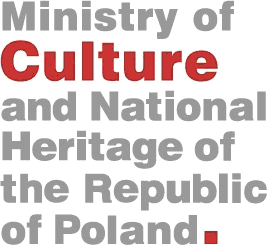
Supported by ERSTE Stiftung та Charles Stewart Mott Foundation:


Visual Culture Research Center (VCRC) was founded in 2008 as a platform for collaboration between academic, artistic, and activist communities. VCRC is an independent initiative, which is engaged in publishing, artistic activities, research, organization of public lectures, discussions, and conferences. In 2015 Visual Culture Research Center received the European Cultural Foundation’s Princess Margriet Award. Visual Culture Research Center was also an organizer of The School of Kyiv – Kyiv Biennial 2015.
Visual Culture Research Center (44 Hlybochytska Street, 1 floor)
Contacts:
+380676695457 Ganna Tsyba
+380639535143 Natalka Neshevets
www.facebook.com/vcrc.org.ua
vcrc@vcrc.org.ua

